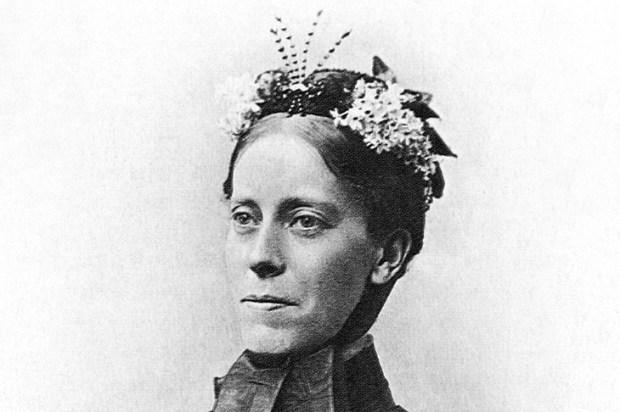This is a very nuanced and subtle novel by Philip Hensher, which manages the highwire act of treating its characters with affection and anger at one and the same time. Politically, ethically and emotionally it places the reader in a kind of vertigo by addressing a singular moral question: is it better to be steadfast to your principles or to change tack as history twists?
The narrator is ‘Spike’, whom we first meet when he is 16 at the school assembly — featuring a recruiting officer who is blind-sided by one of the pupils. Spike is invited into a group of idealistic and pretentious people. Whether their politics are classical Marxist, anarcho-syndicalist, Trotskyite or some mishmash of all three is probably even a mystery to themselves. They loathe CND, they flirt with radical action, they are all promises, promises.
Nevertheless, they burn with the hope of revolution. Soon into the novel we realise that, as time passes, some will change and some will persist. It is the 1980s, and revolutions are coming (late Thatcherism, the End of History) but they are not the revolutions the young expect. In a clever fugue of narrative lines, the idea of aspiration becomes central to how the different lives diverge. The story goes on to a trip to the GDR and then a return after the reunification.
One feature of the book which is worthy of notice is its treatment of sexuality. Spike does not conform to the ‘gradual realisation of who I am’ narrative: when love arrives, it arrives as a lightning bolt. Nor does he, as the years pass, become part of a hedonistic culture. He is faithful. It might be possible to have written the novel with a female lover, with no obvious difference; and that is the point — there is no difference. It would, however, mean losing a comical scene in which Spike’s partner punches a self-identifying male lesbian with two children at an LGBT group meeting.
Another innovation in terms of Hensher’s previous work is strange, dream-like sections, done in a typographical swirl. Some are dreams, some are interrogations, some are traumas; all usually conform to a set number of words (1, 2, 3…) at the beginning of the spiral. As I read it, I held in stasis one thought: when do we get to know Spike’s real name? It is brave not to provide the reader with any form of nominative determinism. Towards the end, as he tries to reconstruct what might have been the causes and consequences of change, Spike becomes the novel’s novelist manqué. At the same time, a real novelist is right there, and it seems he has underestimated the character. It is a finely poised piece of prose, in that we are invited to dismiss the person, then gradually realise there are other lives.
But one of the sheer joys of A Small Revolution in Germany, apart from its sensitivity and intelligence, is expressly described in the book:
It is the superficial and insignificant physical facts that are essential in this world, the ones that last in the mind and that matter. Abstract principles, on the other hand, shift, alter and dissolve without anyone thinking twice about them.
One scene involves a fruit cake in Oxford, and noticing that the host reserves the slice with the glacé cherry for himself. A boiled egg has ‘a ring of deep grey around the yolk, like Victorian mourning paper’. Despite the seriousness of the material, there is a particular elegance about the prose. Hensher is a great noticer, whether of small details or social codes. It’s not a State of the Nation book (Brexit eventually turns up); it’s a State of the Soul book.
Got something to add? Join the discussion and comment below.
Get 10 issues for just $10
Subscribe to The Spectator Australia today for the next 10 magazine issues, plus full online access, for just $10.
You might disagree with half of it, but you’ll enjoy reading all of it. Try your first month for free, then just $2 a week for the remainder of your first year.














Comments
Don't miss out
Join the conversation with other Spectator Australia readers. Subscribe to leave a comment.
SUBSCRIBEAlready a subscriber? Log in